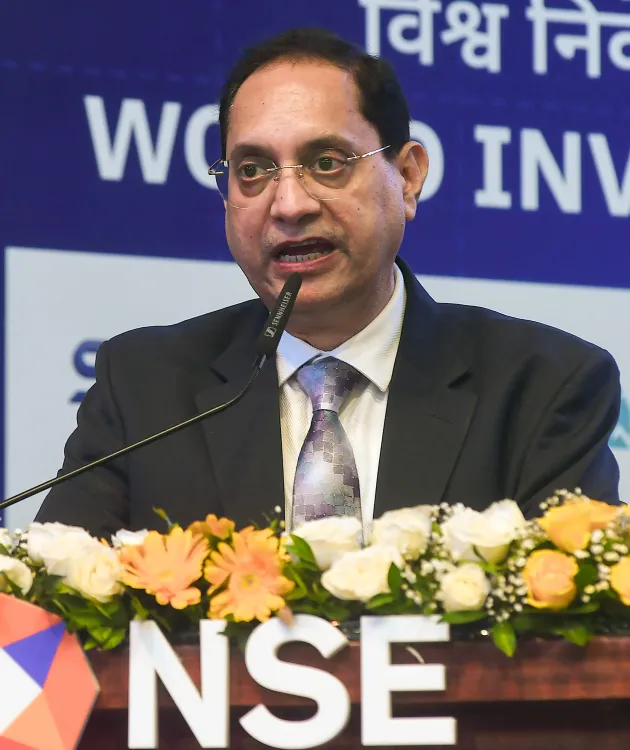Is Post-quantum Cryptography Essential for Protecting Digital Systems?

Synopsis
Key Takeaways
- Quantum computing poses a significant threat to current encryption methods.
- Transitioning to post-quantum cryptography is essential for future-proofing digital systems.
- SEBI is proactive in promoting blockchain technology within fintech.
- There is a growing need for integrity and transparency in capital markets.
- Fraudsters are exploiting digital platforms to deceive investors.
Mumbai, Oct 8 (NationPress) Tuhin Kanta Pandey, Chairman of the Securities and Exchange Board of India (SEBI), cautioned on Wednesday that the emergence of quantum computing could potentially dismantle cryptography-based encrypted passwords, which are currently employed to safeguard digital systems.
Addressing the media during the Global Fintech Fest 2025, Pandey remarked, “Research into quantum-safe computing is underway, and quantum computing will inevitably become a reality.”
“This could undermine traditional cryptography, which underpins crypto security. Even passwords generated through cryptographic methods may be compromised. Thus, we must rethink how we develop and secure our passwords,” he asserted.
He compared the anticipated effect to the Y2K phenomenon, where systems required updates as the year transitioned from 1999 to 2000.
“Passwords created using current cryptographic techniques could be at risk from quantum computing. In areas where cryptography is employed for security, measures will be necessary to implement quantum-resistant passwords, also known as post-quantum cryptography,” Pandey elaborated.
The SEBI chairman also noted that certain fintech firms are already utilizing blockchain technology.
“We have established a regulatory sandbox where these companies can showcase the various applications of blockchain in fintech,” he mentioned.
Previously, at another event, Pandey observed that while digital infrastructure has enhanced market accessibility, it has also equipped fraudsters with new tools to mislead investors.
“Capital markets are critical to our nation's growth, and it is our shared duty to ensure that this engine operates on a foundation of integrity and transparency,” he stressed.
Earlier this week at the World Investor Week 2025, Pandey stated, “Although digital infrastructure has placed markets at our fingertips, it has also provided fraudsters with new means to deceive investors through unsolicited messages on messaging apps, dubious influencers, and fraudulent trading apps and websites promising what our markets can never deliver -- guaranteed returns.”










